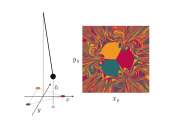Biotechnology: Using wireless power to light up tiny neural stimulators
""Implantable optical devices that target neurons can be improved using miniature coils smaller than a grain of rice using optogenetic technology. Scientists can propagate pulses of light using the method to turn protein ...








